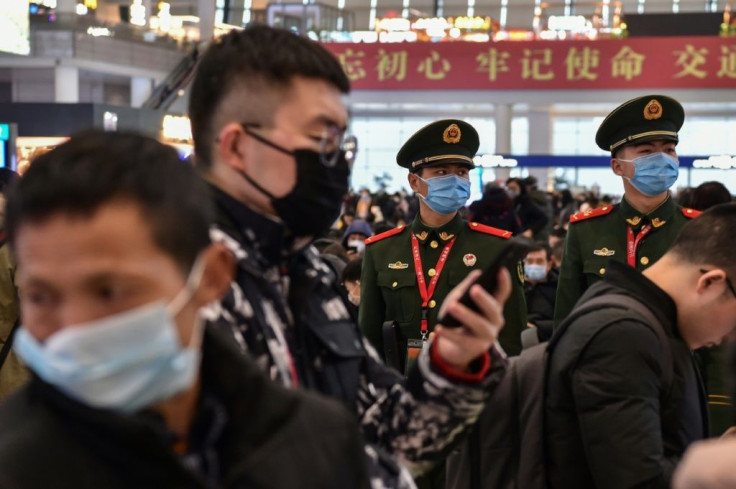US Stocks Steady As WHO Says New China Virus Not Emergency

Global stocks were under pressure again Thursday amid nervousness surrounding the spread of a deadly new virus from China, although US markets strengthened after the World Health Organization stopped short of declaring a global emergency.
China on Thursday locked down two major cities in a province at the center of a deadly virus outbreak, banning planes and trains from leaving in an unprecedented move aimed at containing the disease that has spread to other countries.
Stocks fell sharply on leading European and Asian bourses, but sentiment on Wall Street shifted following the WHO statement.
"This is an emergency in China, but it has not yet become a global health emergency," WHO chief Tedros Adhanom Ghebreyesus told reporters in Geneva.
The Nasdaq edged to a record, while the Dow finished slightly negative.
The respiratory virus has claimed 18 lives since emerging from a seafood and animal market in the central city of Wuhan, infected hundreds of other people and been detected as far away as the United States, where authorities are investigating a second case.
The virus has caused alarm because of its similarity to SARS (Severe Acute Respiratory Syndrome), which killed hundreds of people in 2002-2003.
"We started down in the morning because of the move the Chinese made to quarantine cities in varying degrees," said LBBW's Karl Haeling.
"And then equities recovered after the WHO failed to declare a bigger crisis than it is," he added.
Shanghai's stock market tumbled 2.8 percent in the final day of trading before a week-long market holiday for the Lunar New Year, when hundreds of millions of people travel across China -- raising fears the contagion could spread further.
It was the biggest pre-Lunar New Year fall on record for the bourse.
Hong Kong lost 1.5 percent and Tokyo 1.0 percent.
In Europe, London's benchmark FTSE, Frankfurt's DAX 30 and the Paris CAC-40 were all off at least 0.7 percent.
"China's importance in the overall global supply chain and the fact they are a huge export market for many countries... opens up a more unfavourable global outcome this time around," Stephen Innes, chief market strategist of AxiCorp, said in a client note.
Oil prices were hit hard, shedding around 1.5 percent.
"Given the importance of China for oil demand and having the outbreak falling on the cusp of peak domestic travel season, the timing is particularly damaging," Innes said.
The European Central Bank, as expected, left interest rates at historic lows and maintained "quantitative easing" (QE) bond-buying purchases at Thursday's meeting, the second chaired by former IMF chief Christine Lagarde since taking the helm in November.
Risks to the euro area "remain tilted to the downside, but have become less pronounced as some of the uncertainty surrounding international trade is receding," Lagarde told reporters in Frankfurt.
New York - DOW: DOWN 0.1 percent at 29,160.09 (close)
New York - S&P 500: UP 0.1 percent at 3,325.54 (close)
New York - Nasdaq: UP 0.2 percent at 9,402.48 (close)
London - FTSE 100: DOWN 0.9 percent at 7,507.67 (close)
Frankfurt - DAX 30: DOWN 0.9 percent at 13,388.42 (close)
Paris - CAC 40: DOWN 0.7 percent at 5,971.79 (close)
EURO STOXX 50: DOWN 0.9 percent at 3,736.85 (close)
Tokyo - Nikkei 225: DOWN 1.0 percent at 23,795.44 (close)
Hong Kong - Hang Seng: DOWN 1.5 percent at 27,909.12 (close)
Shanghai - Composite: DOWN 2.8 percent at 2,976.53 (close)
Euro/dollar: DOWN at $1.1058 from $1.1093 at 2200 GMT
Pound/dollar: DOWN at $1.3124 from $1.3142
Euro/pound: DOWN at 84.25 pence from 84.41 pence
Dollar/yen: DOWN at 109.47 yen from 109.84 yen
Brent Crude: DOWN 1.9 percent at $62.04 per barrel
West Texas Intermediate: DOWN 2.0 percent at $55.59 per barrel
© Copyright AFP 2024. All rights reserved.




















